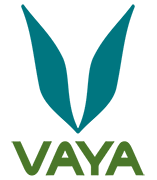Ketogenic Diet – Here’s All You Need to Know About It!
If you’ve been researching weight loss at all, then you’ve probably already heard of the ketogenic diet. Many people have been achieving major success utilizing this diet method. It is basically a compromise between the Atkins diet and low carb diets, making it an extremely low carb, high fat diet. The ketogenic diet requires you to severely reduce your carbohydrate intake and exchange it for fat. Replacing carbohydrates with fat places your body into a particular metabolic state known as ketosis. The ketosis state makes your body become extremely efficient at burning fat for energy. It even transforms fat into ketones inside your liver which can provide your brain with energy. Not only does this help you lose weight, but it can also lead to a massive reduction in blood sugar and insulin levels which is great for your overall health.
There are four different types of ketogenic diets:
- Standard ketogenic diet – This version is extremely low-carb, high-fat, moderate-protein. Normally it is 5% carbs, 20% protein, 75% fat.
- Cyclical ketogenic diet – This version cycles through periods of standard keto with higher-carb eating days. For example, 5 ketogenic days and 2 high -carb days in a week.
- Targeted ketogenic diet – This version focuses on eating carbs during workouts.
- High-protein ketogenic diet – This version is closer to the standard keto diet but has a heavier emphasis on protein. The new ratio is 5% carbs, 35% protein, and 60% fat.
When you do this diet successfully it can be even more successful than sampling counting calories.
Here are some foods to avoid:
- Sugary foods: Fruit juice, cake, smoothies, etc.
- Grains or starches: Rice, wheat, cereal, pasta, etc.
- Fruit: Fruit must be restricted to extremely small portions.
- Beans: Kidney beans, peas, chickpeas, lentils, etc.
Most of your meals should be built around these foods:
- Meat: Red meat, lamb, steak, ham, turkey, sausage, bacon, and chicken.
- Fatty fish: Tuna, salmon, trout, and mackerel.
- Eggs: Pastured or omega-3 whole eggs.
- Butter and cream: Organic butter is best.
- Cheese: Unprocessed cheese.
- Nuts and seeds: Almonds, walnuts, flax seeds, pumpkin seeds, chia seeds, etc.

